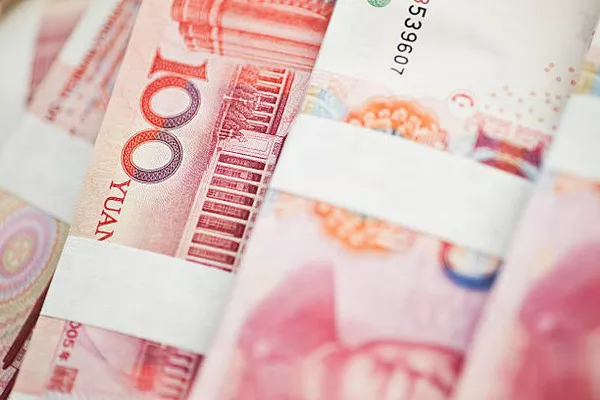In every country, the issuance of currency is a carefully regulated process, deeply intertwined with the national economy, legal frameworks, and government policies. China, one of the world’s leading economic powers, is no exception. The legality of printing money in China is a topic that intertwines economic policy, legal restrictions, and the role of various governmental institutions. This article delves into the legality of printing money in China, exploring the laws governing currency issuance, the role of the People’s Bank of China (PBOC), and the implications of unauthorized money printing.
The Legal Framework Governing Money Printing in China
The Role of the People’s Bank of China
The People’s Bank of China (PBOC) is the central bank of the People’s Republic of China and is the sole institution authorized to issue the Renminbi (RMB), China’s official currency. This authority is derived from various legal provisions and regulatory frameworks designed to ensure economic stability and integrity. The primary legislative document that outlines the PBOC’s role is the “Law of the People’s Republic of China on the People’s Bank of China,” first enacted in 1995 and subsequently amended.
Under Article 4 of this law, the PBOC is explicitly granted the exclusive right to print and issue currency. This exclusivity is critical for maintaining monetary stability and preventing inflation or counterfeiting, which could undermine public confidence in the currency and destabilize the economy.
Legal Restrictions and Penalties
Printing money without authorization is illegal in China and is considered a severe offense. The Chinese Criminal Law outlines strict penalties for counterfeiting and unauthorized issuance of currency. Articles 170 and 171 of the Criminal Law provide detailed descriptions of these crimes and the associated punishments.
Article 170 states that individuals who counterfeit currency can face significant penalties, including life imprisonment or fixed-term imprisonment of not less than ten years, alongside fines or confiscation of property. For cases involving smaller amounts of counterfeit currency, lighter sentences may be applied, but the legal system remains stringent to deter such activities.
Article 171 addresses the unauthorized manufacture of currency. The law stipulates that producing, selling, or transporting equipment, materials, or other tools for counterfeiting money is punishable by imprisonment, criminal detention, or surveillance, and in severe cases, even life imprisonment.
Economic Implications of Unauthorized Money Printing
Inflation and Economic Stability
Printing money without proper authorization can lead to significant economic repercussions, the most immediate being inflation. Inflation occurs when the supply of money exceeds the demand for goods and services, leading to price increases. In a controlled economy like China’s, where the government regulates many aspects of economic activity, unregulated money printing can disrupt planned economic strategies and lead to hyperinflation, eroding the purchasing power of the currency and destabilizing the economy.
Public Confidence and Financial Security
The integrity of the national currency is paramount for maintaining public confidence in the financial system. Unauthorized money printing can undermine this confidence, leading to a loss of faith in the currency and the institutions that manage it. This can result in a preference for foreign currencies or other forms of assets, exacerbating capital flight and reducing the efficacy of domestic monetary policy.
The Role of Technology and Enforcement
Advanced Security Measures
To combat unauthorized money printing and counterfeiting, China has invested heavily in advanced security features for its currency. The PBOC continuously updates the design of the Renminbi with sophisticated anti-counterfeiting technologies, such as watermarks, security threads, holograms, and microprinting. These measures make it increasingly difficult for counterfeiters to replicate the currency accurately.
Law Enforcement and Public Awareness
Enforcement of laws against counterfeiting and unauthorized money printing is a multi-faceted effort involving various governmental and law enforcement agencies. The PBOC collaborates with the Ministry of Public Security and other entities to conduct regular crackdowns on counterfeiting operations. Public awareness campaigns are also crucial, educating citizens on how to identify genuine currency and the legal repercussions of engaging in counterfeiting activities.
Historical Context and Case Studies
Historical Incidents of Counterfeiting
China has a long history of dealing with counterfeiting and unauthorized money printing. In the early 20th century, during periods of political instability, various factions and warlords issued their own currencies, leading to widespread economic confusion and instability.
In more recent times, notable cases of counterfeiting have been reported. For instance, in the early 2000s, a significant counterfeiting ring was dismantled, which had produced millions of yuan worth of fake currency. These incidents underscore the ongoing challenges and the need for robust legal and enforcement mechanisms.
Comparative International Perspective
Comparing China’s approach to other countries provides additional insights. In the United States, for example, the Federal Reserve is the sole entity authorized to issue currency, and counterfeiting is a federal offense punishable by severe penalties. Similarly, in the European Union, the European Central Bank holds exclusive rights to issue the euro, and member states enforce stringent anti-counterfeiting laws.
Conclusion
The legality of printing money in China is unequivocally clear: it is illegal for any entity other than the People’s Bank of China to issue currency. This prohibition is enshrined in Chinese law to ensure economic stability, prevent inflation, and maintain public confidence in the financial system. Unauthorized printing of money is met with severe penalties, reflecting the seriousness with which the Chinese government views such offenses.
The role of the PBOC, advanced security measures, and rigorous law enforcement all contribute to safeguarding the integrity of the Renminbi. While historical and modern challenges persist, China’s comprehensive legal and regulatory framework, coupled with public awareness efforts, continues to be pivotal in preventing unauthorized money printing and counterfeiting.
As China continues to grow as a global economic powerhouse, maintaining the integrity of its currency remains a top priority. The stringent legal measures against unauthorized money printing reflect the importance of a stable and trustworthy monetary system in supporting the nation’s economic ambitions and ensuring the welfare of its citizens.


